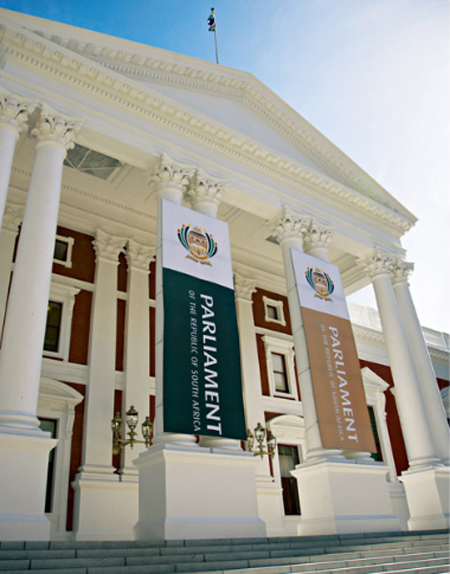A Kenyan Perspective of South Africa’s Draft National Policy on Intellectual Property
- Victor Nzomo |
- September 27, 2013 |
- CIPIT Insights

As many IP enthusiasts may have heard, South Africa has published a Draft National Policy on Intellectual Property (IP) (hereafter the Policy). Within the Kenyan context, this blogger has previously questioned the need for a national IP policy particularly in light of the recognition given to IP in the Constitution. However, for the purposes of this post, the policy provides a good basis for a comparative analysis of the state of IP in both South Africa and Kenya as well as possible recommendations to strengthen IP laws.
In the area of patents, Kenya’s IP office undertakes both formal and substantive examinations of patent applications whereas in South Africa, the Policy recommends the establishment of a substantive of a substantive search and examination of patents to address issue of “weak” vs “strong” patents. The policy’s recommendation to amend South African patent law to include pre-and post-opposition would also be instructive to Kenya.
In the area of trademarks, an important proviso of the policy for both Kenya and South Africa is that where traditional knowledge is used in the developing or devising of trademarks, then there should be disclosure of the origin of the knowledge, prior informed consent, benefit-sharing agreements or co-ownerships of the trademarks. This blogger argues that such a proviso must be included in the trade mark legislations of both countries.
In the area of copyright, this blogger agrees with the policy’s statement that there is no need for South Africa to follow the trend of some developed countries which are extending the period of 50 years to 70 or 75 years after the death of the author. The policy states that the 50 year period in place is enough to recoup the benefit before the copyright work goes to the public domain.
An important copyright law proviso of the policy for both Kenya and South Africa is that where traditional knowledge is used in developing derivative works, it is important that there should be disclosure of the origin of the knowledge, prior informed consent, benefit-sharing agreements or co-ownerships of the works. This blogger argues that such a proviso must be included in the copyright legislations of both countries.
With regard to the collective management of copyright, the policy cites with approval the findings of the Farlam Commission which recommends greater state intervention in the administration of CMOs to guarantee transparency, corporate governance and fair distribution of royalties. In particular, the policy recommends that the Copyright Tribunal should play a key role in the determination of fair royalties and creating a framework in which new users are able to easily determine the full business entry costs.
At the international level, this blogger agrees with the policy which states that while there is a need to ratify the WIPO Internet Treaties, it would be dangerous for South Africa to join without infrastructure. Therefore the policy recommends that the treaties must be viewed in the context of the country’s needs and requirements. This position is equally relevant to Kenya.
In the context of plant variety protection, this blogger agrees with the policy’s recommendation that plant variety protection legislation must provide a clear exception to the exclusive rights of plant breeders to allow farmers to reuse, resell and exchange seeds. These exceptions have been discussed previously in the context of the SADC Draft Protocol for the Protection of New Plant Varieties.
The policy contains a number of important recommendations relating to
state-owned IP, including the government compiling a database of all IP owned by it through various IP regimes and how it should utilize international IP systems to protect its emblems worldwide. However a noticeable shortcoming of the policy is the generation and commercialization of IP by universities, research institutions, particularly where such IP is as a result of publicly financed R&D.
A cross-cutting recommendation in the policy is that both IP laws and competition laws must be reviewed and amended to combat anti-competitive practices.
